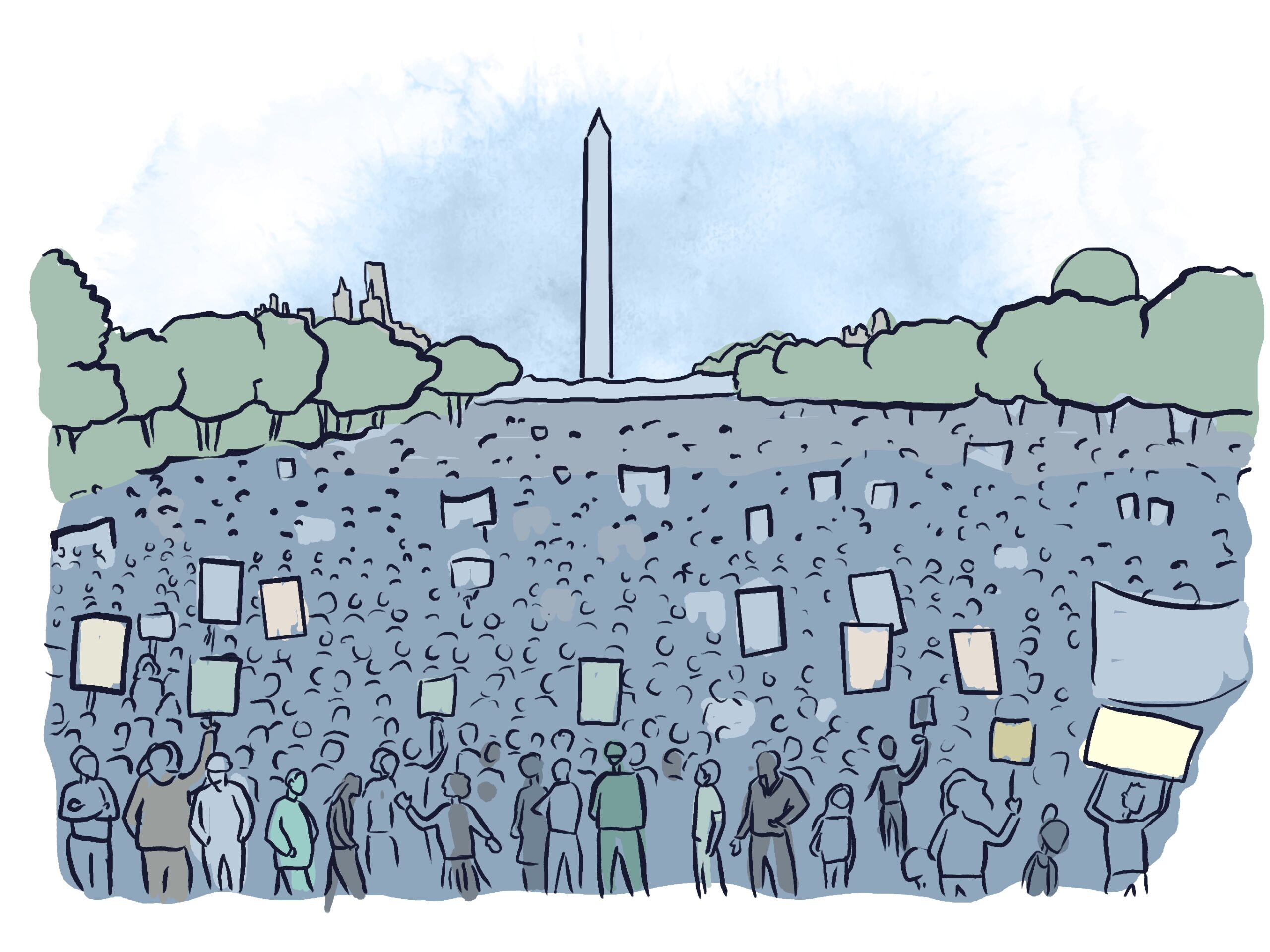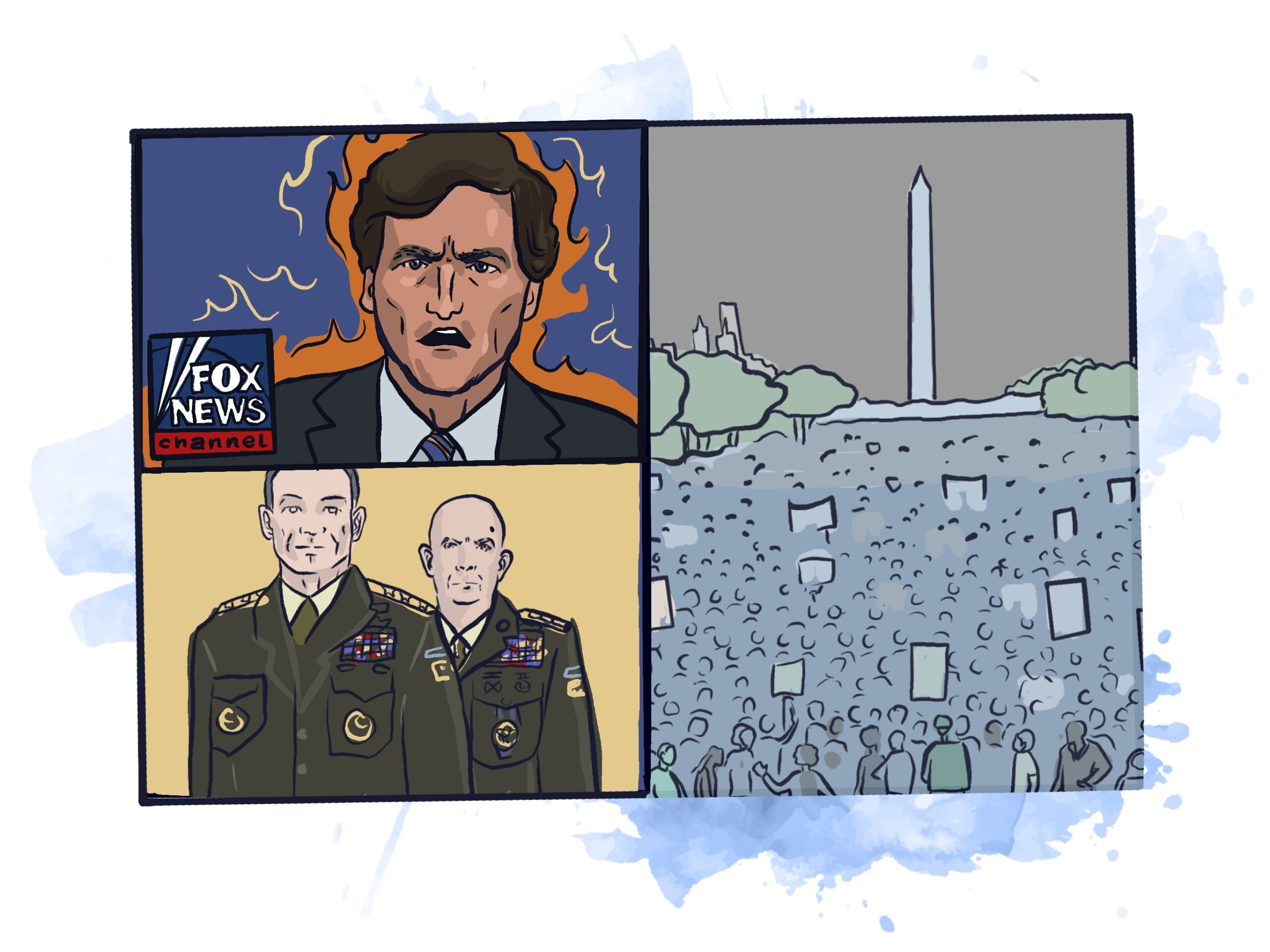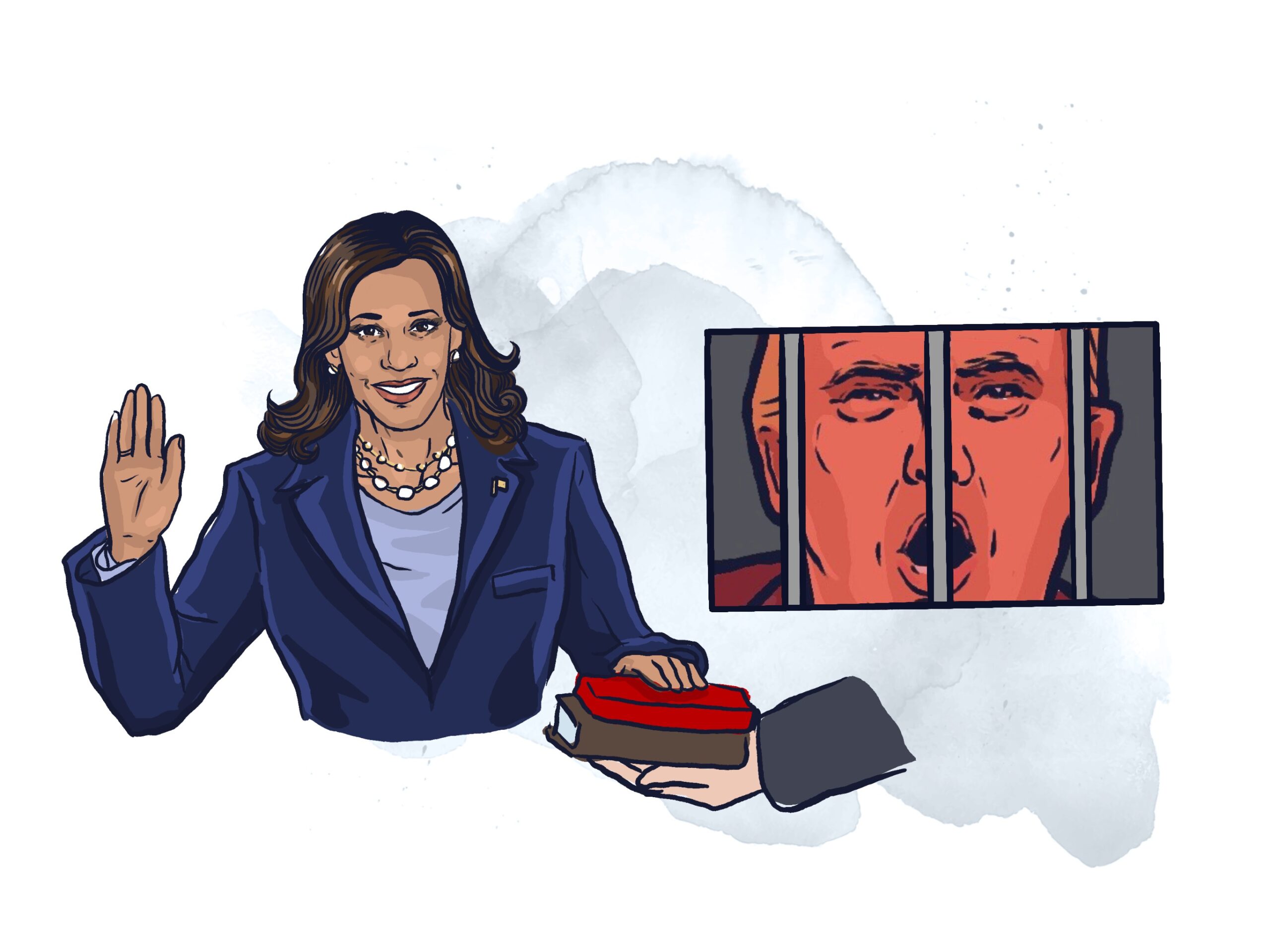You hear about the pro-democracy movement announcing massive demonstrations on January 16th, ahead of the inauguration. You call as many friends as you can to go together to Washington, D.C. — enough for a large bus. When you arrive, the streets are packed. People from across the political spectrum show up — from radical left-wingers with piercings and tattoos to buttoned-down D.C. bureaucrats. Almost 300,000 people throng to D.C. Even more join locally organized protests.


The opposition media smears the efforts. But the media attacks don’t convince anyone but diehard MAGA. The mass rally strengthens mainstream institutions’ backbones. Retired generals come out in fierce support for “the peaceful transfer of power” and the military purges coup supporters.
Boosted by the widespread strikes and ensuing protests in the streets, the National Guard is put back into control by the military. Thousands are arrested, including many National Guard members and police. The situation remains extremely tense, with reports of sporadic violence. However, on January 20th, President Harris is inaugurated. Donald Trump’s court cases catch up with him and he is imprisoned. A successful coup has been averted. But the work of creating a much stronger, robust democracy remains.

THE END.
You survived the transfer of power. But creating a deep democracy is a much bigger task ahead. Researcher Stephen Zunes has identified four things we need to stop a coup: widespread opposition, nonviolent discipline (to avoid giving the wanna-be autocrat excuses for more violence), alliance building, and refusal to recognize the coup plotters as legitimate.
Read Closing Thoughts from the author.
